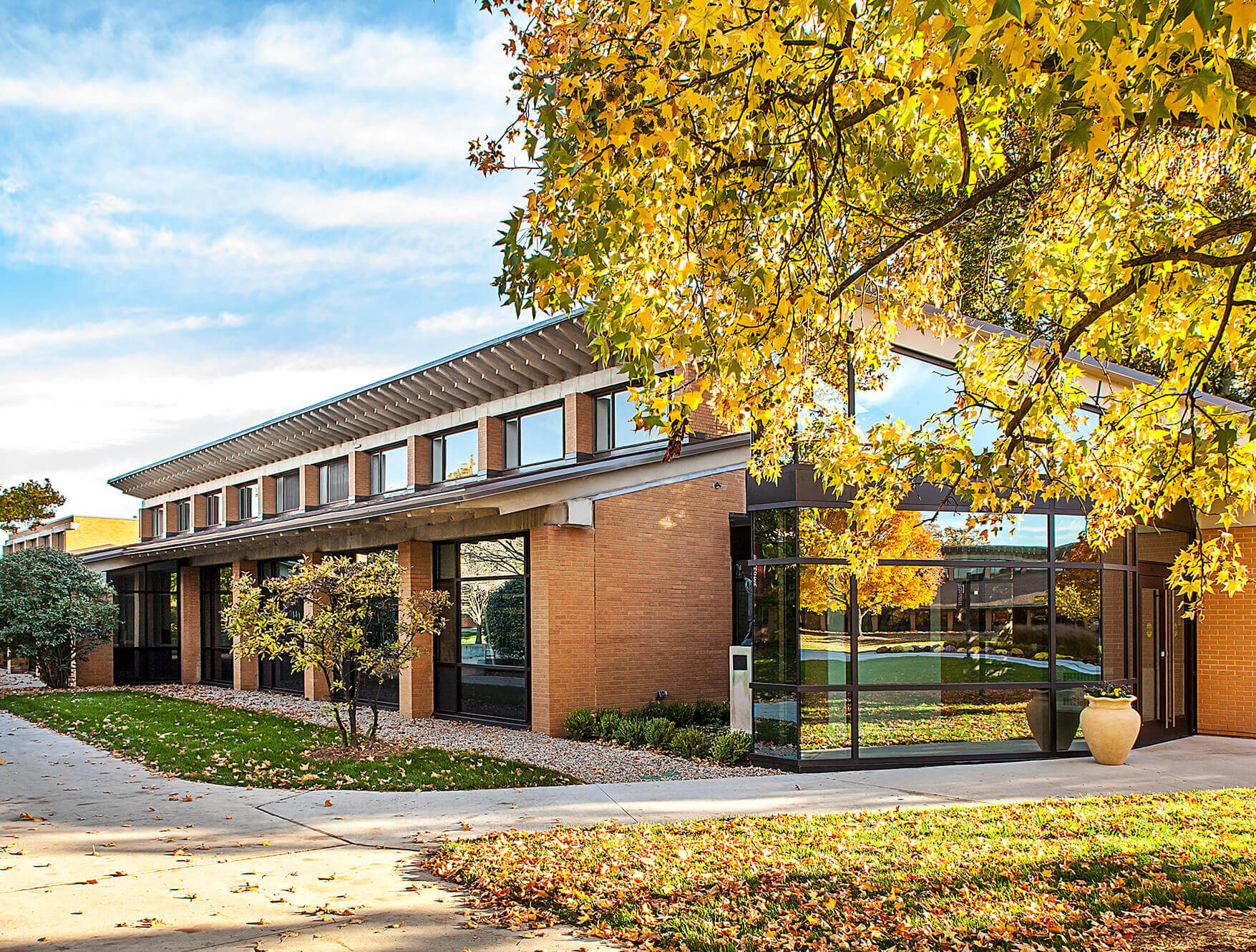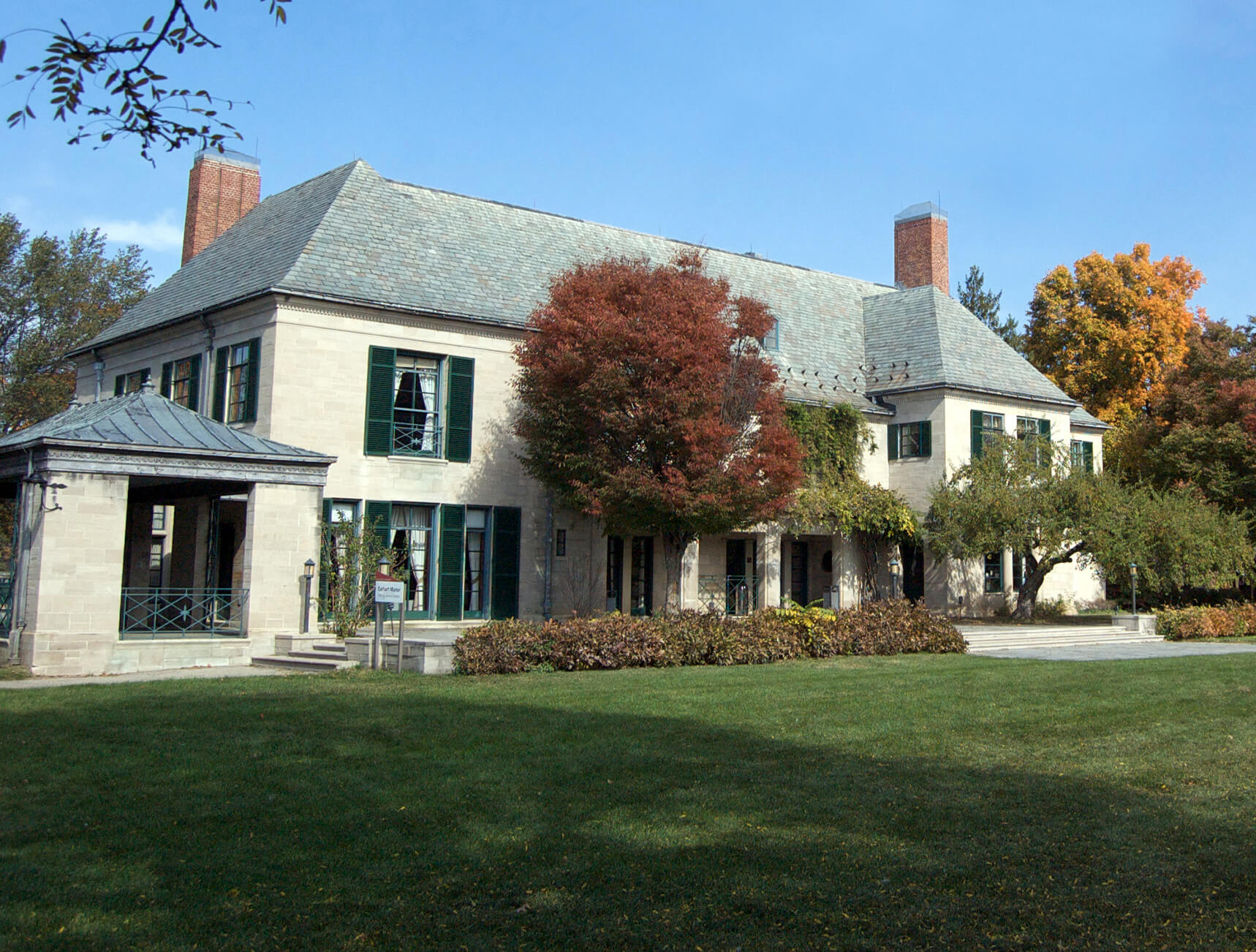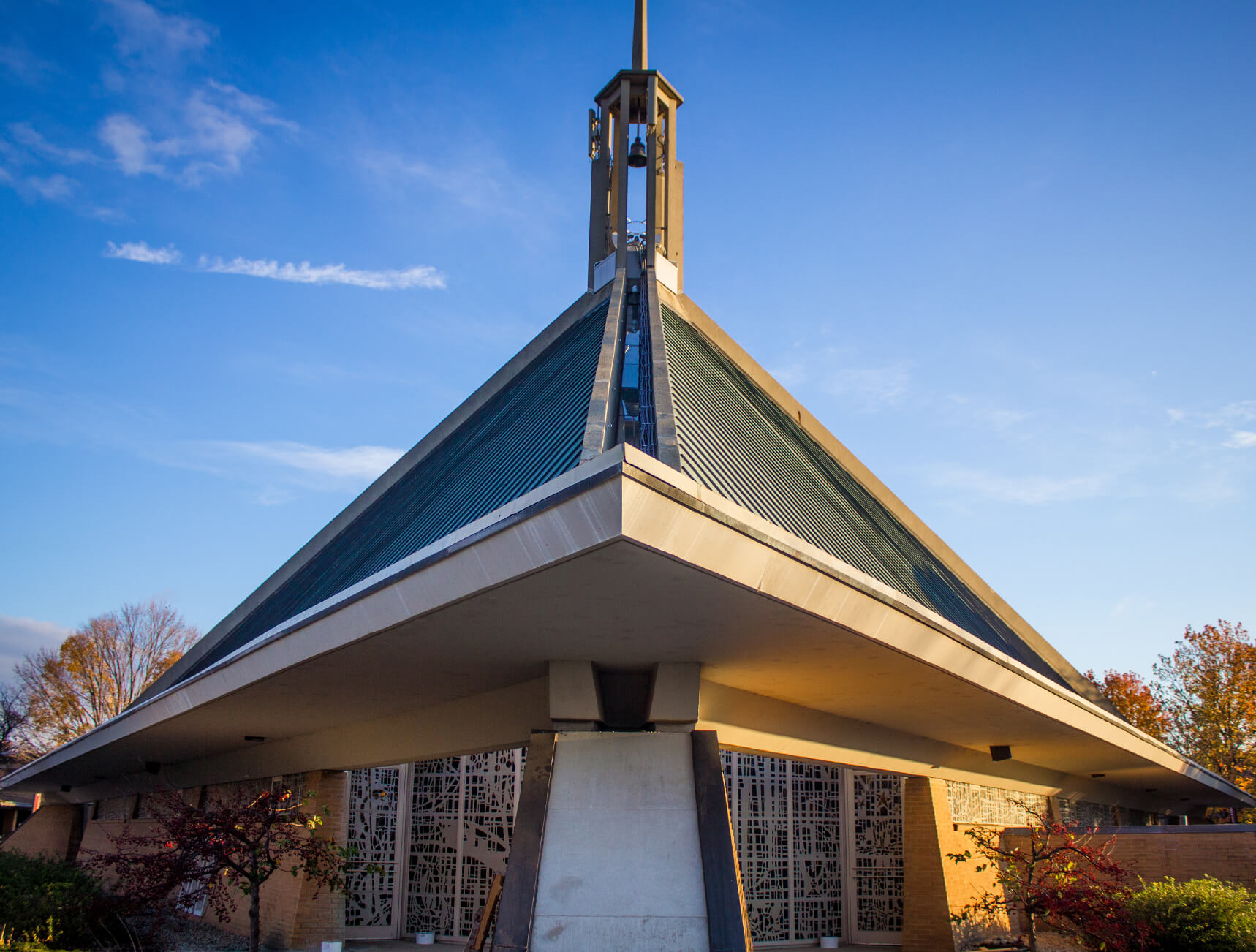Hearts Together in The Holy Land
During an inaugural Winterim trip, CUW and CUAA students walked where Jesus walked.


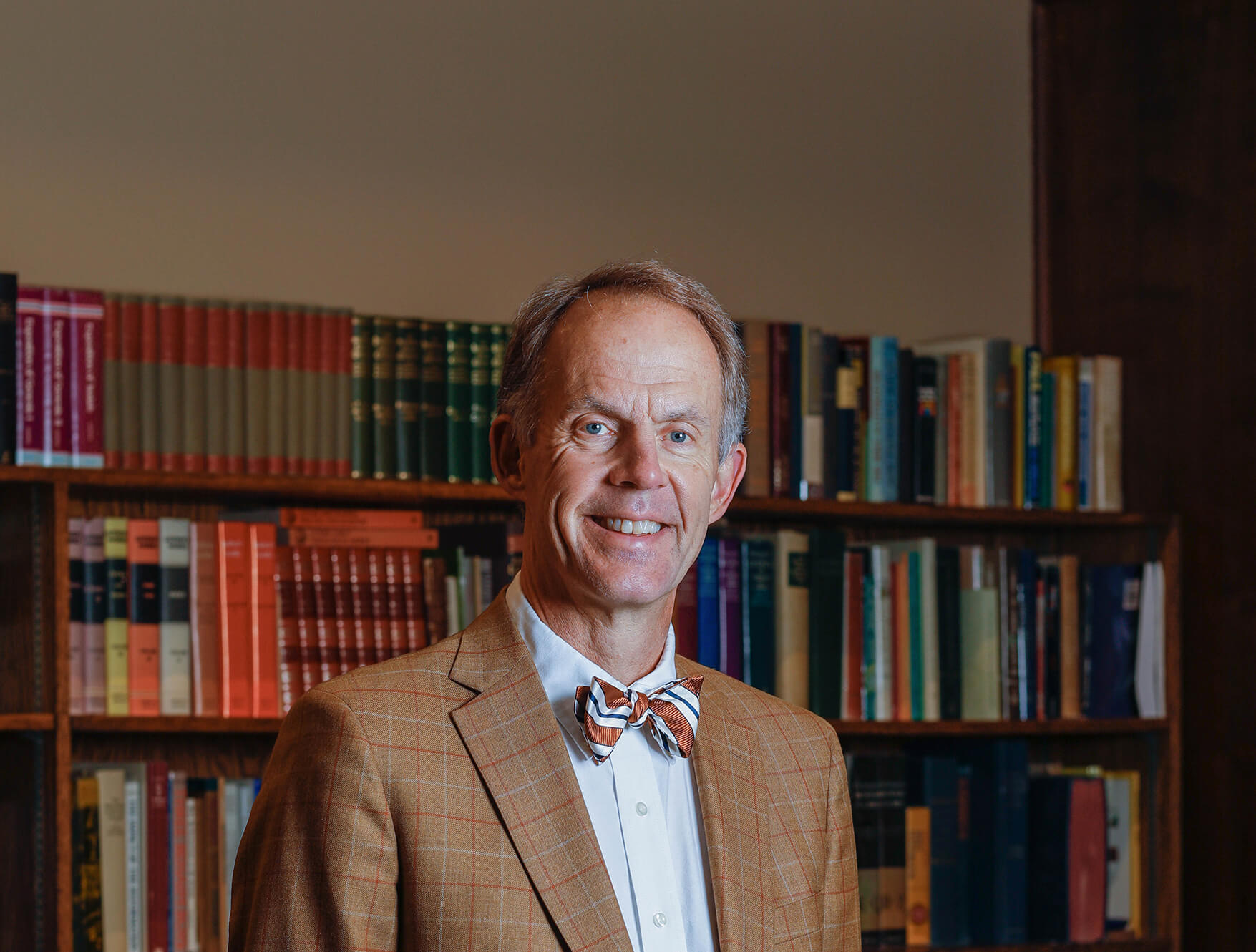
The name itself helps to tell our story. Quite literally, Concordia means “Hearts Together.” In our Lord’s High Priestly Prayer, Jesus shows His own heart’s desire—that we might be one. Our theme for this academic year is based on that prayer in John 17. At Concordia, things are really coming together. Better still, at Concordia people are coming together as part of a dynamic Christian higher education community.
This annual University Report offers glimpses of how things and people are coming together at CUAA. We are putting our hearts into this mission and ministry, and the Lord is blessing Concordia in extraordinary ways. But there is much more to this remarkable unfolding story. Concordians come together with the understanding that, ultimately, we are set apart “for service to Christ in the Church and world,” as our Mission Statement compels us. In the pages that follow, you will also see examples of Concordians in action.
Those who are a part of our campus community on a daily basis—faculty, staff, and students—recognize that what is transpiring at Concordia is having an impact on their lives. Of course, that is their inspiration for seeking to have a positive impact upon the lives of others. Coming together at a place like Concordia forms and shapes people as the Spirit of Christ works through the Word of God. What a joy and privilege to be a part of the sending of those same Spirit-formed, Spirit-shaped people to share the Gospel of Christ with others so that their hearts might be joined with ours. Concordia—Hearts Together!
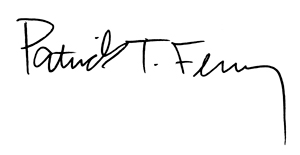
Rev. Patrick T. Ferry, Ph.D.
President

When “strategic planning” is central to your work, you come to expect various reactions from people, ranging from dread to guarded interest to those few genuinely jazzed individuals who are as enthusiastic about planning as you are.
I can’t blame folks for this general lack of excitement. After all, at its most expected and least thrilling, strategy is defined as a plan of action to achieve an overall aim. Hold steady, right? At its most interesting, however, strategy takes on more vigor: the art of planning and directing overall military operations and movements in a war or battle. Now that sounds intriguing, yes?
A friend who served many years as a Navy SEAL helped me to appreciate this flavor of strategy, which is guided by an idea known as the “Commander’s Intent.” In this approach, while there is certainly a plan that outlines the operation, what is most critical to the mission’s success is not checking off a locked set of tasks but, rather, accomplishing the goal using a shared set of strategic principles, which guide and direct action even if (when) the “plan” goes awry.
In the end, strategic planning isn’t what triumphs on the field of battle, but strategic thinking and strategic action.
You don’t have to know much about today’s higher education landscape to appreciate the parallels to a battlefield. We know that to meet our mission, in fact to exist into the future, we must consider, measure, assess, and plan carefully. But we must also innovate, imagine, take action, and risk boldly.
This University Report outlines Concordia University’s strategic action, not just our plans, in five core performance areas:
Our action is powered by a passionate pursuit of four core “Mission Vision Themes”—Faith and Learning, Impact Through Service, Purposeful Growth, and Access and Opportunity—and that’s how this report is structured.
“As a distinctively Christ-led university, we exist to prepare people for lives of rich and abundant service in the Name of Christ Jesus.”Our planning is both incredibly complex and incredibly simple.
The work is complex because Concordia University, by God’s goodness, is a multifaceted, multi-state, multi-national organization serving thousands of students; employing hundreds of people; and interacting with dozens and dozens of constituents, corporations, church organizations, and the like. We have complex, often complicated, work to accomplish, and the context in which we work—with increased threats and challenges on every side—is incredibly volatile.
And yet as a distinctively Christ-led university our work is very simple.
We exist to prepare people for lives of rich and abundant service in the Name of Christ Jesus. We educate and mentor. We champion and guide, and, ultimately, we help our students achieve their God-given potentials.
Enjoy this report, and with us rejoice in the great Mission that with you we share: to proclaim Christ throughout the Church and the world.
We Are Concordia,

Gretchen Jameson
Senior Vice President
Office of Strategy and University Affairs
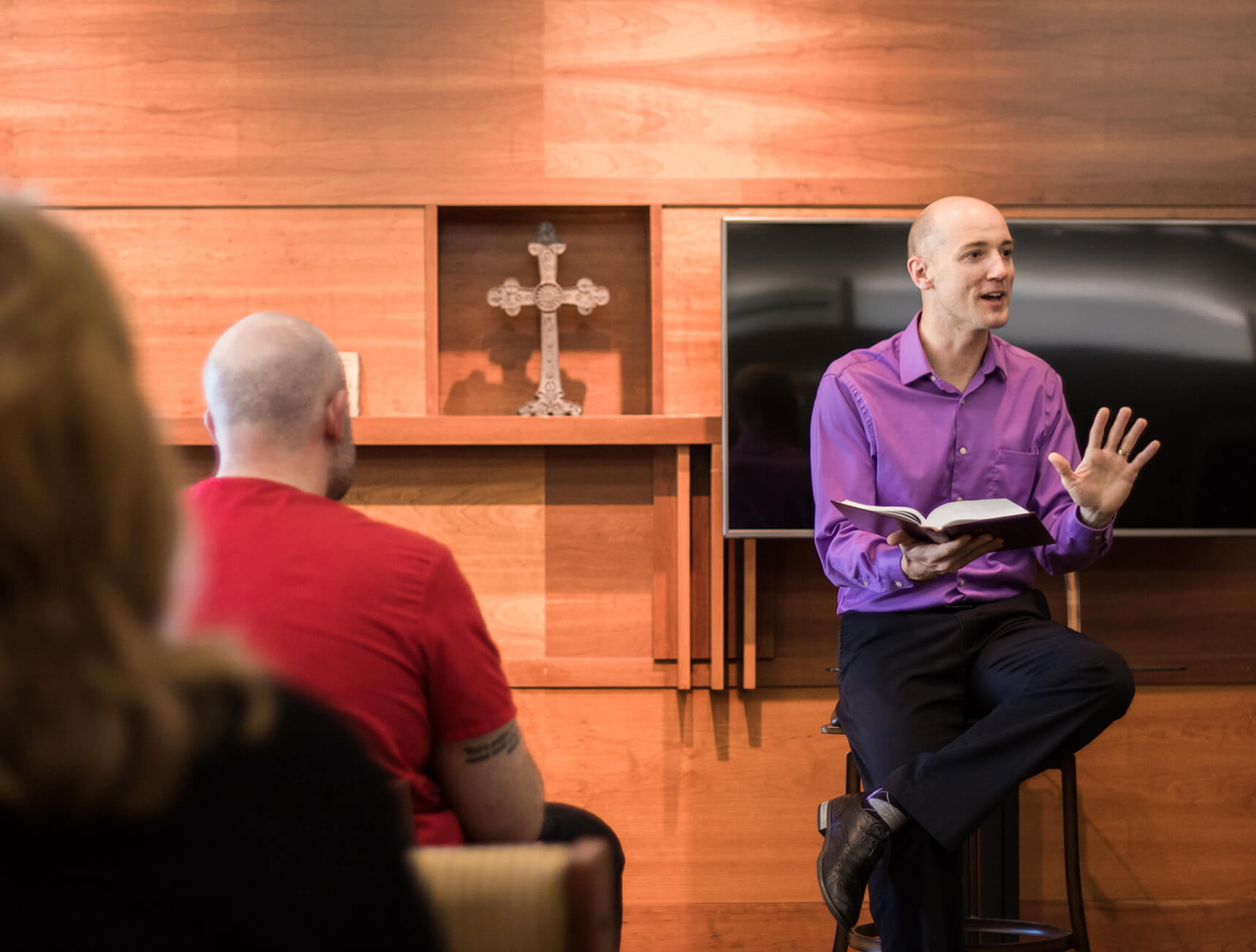
Concordia students learn in innovative, Christ-centered environments. Our academic programs are rigorous and diverse, consistent with the needs of the Church and our communities. Our Christian faculty are outstanding teachers and mentors, active in scholarship and service, and successfully connect faith to learning.
This year we pursued three strategic goals to achieve an ever-more excellent faith and learning experience at Concordia University.
This year yielded fresh avenues for teaching lifelong personal spiritual practices on both residential campuses.
At our Concordia University Ann Arbor campus, our Campus Ministry coordinators function in many ways, and this past year we took steps to engage them even more robustly as part of residence hall life. We also embraced a campus-wide emphasis on prayer and personal prayer practices. In 2016–17, two unique prayer series were offered as part of regular campus Chapel, while throughout Lent the entire campus participated in a 40-day prayer challenge.
Both here in Ann Arbor and at our Wisconsin campus, our initiatives were shaped by the input of students as part of the first-ever comprehensive Spiritual Life Survey, which was conducted by the Office of Institutional Research during the 2015–16 and 2016–17 academic years.
To better meet the pressing needs of both the Church and society, the Core Task Force, a special committee of the faculty, plans to approve a newly updated Core curriculum that embraces our distinctive Lutheran theology, while providing a dynamic education that will equip our students to achieve their God-given potential in 21st century career contexts. The Concordia Core is a common set of courses designed to form a distinctive identity in our graduates so they may carry our mission, and their vocation, out into their families, communities, and the world at large.
Common readings in one or more classes will foster a university-wide discussion of important topics and present opportunities for symposia and/or guest speakers, furthering the development of an intellectual community on campus. A number of these courses will be interdisciplinary, utilizing multiple instructors, giving students a broader, integrated learning experience.
The Core curriculum embraces six Core Themes as central to student intellectual inquiry and growth. Within these themes, students will enjoy choice and flexibility to maximize their interests and the needs of their programs by selecting courses that have a direct impact on their educational goals. Taken as a whole, the new Core promises a meaningful integration of faith and learning, and the development of skills necessary for successful vocations.
Ensuring that we remain vigilant to meet an array of vocational goals is of critical concern to Concordia University. Moving swiftly is not generally a strength in higher education nor is quick always best. Still; our academic leadership is focused on propelling forward, redeveloping the process for program development to better meet the needs of 21c students. We are intent on making the right moves into new degree, program, and certificate options for our students, from the traditional undergraduate level to the accelerated adult and graduate levels.

During an inaugural Winterim trip, CUW and CUAA students walked where Jesus walked.

An anchor degree program equips students to strengthen families.

8,500 miles and a world away, three students fulfilled a degree requirement through a special university connection.

Throughout this academic year, a series of experts shared their insights on the continued relevance of Luther and the Reformation.
Concordia University Online ranks 2nd in Wisconsin’s “Best Online Schools” –Community for Accredited Online Schools
CUAA undergrads who say faculty effectively integrate Christian faith into their classes
The top degree-seeking programs of study
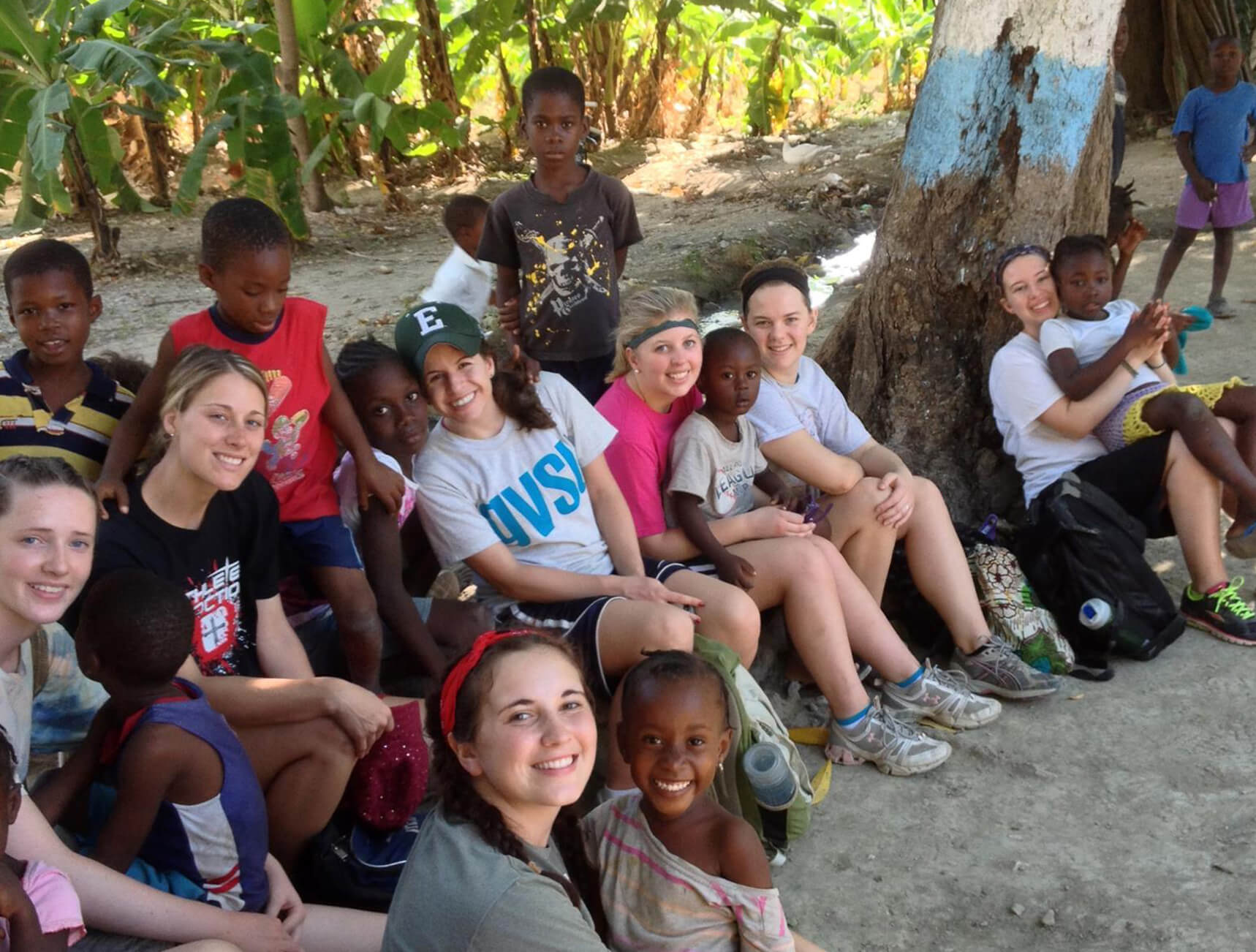
Concordia impacts the Church and world, developing globally minded citizens who transform lives, influence communities, and value their neighbors near and far, through Christ-like service and leadership. This year we focused on strategies close to home and with a global emphasis, as we endeavored to live this unique theme.
Ensuring that Concordians have meaningful global experiences prepares our students for lives of service to Christ in the Church and throughout the world. Creating strategic and intentional interactions between each of our academic schools and international counterparts is a clear focus of that work.
This year brought many opportunities for enhanced connectivity between Concordia University, most spurred by the Concordia International Center housed on the Wisconsin campus, and partner institutions worldwide.
Close to home or across the world, Concordia achieves its mission only when our students and alumni are active in service leadership. Ensuring that our students experience the transformation that often accompanies service learning prepares our students to live and lead lives of promise and purpose.
This year we developed the Guide to Leading Servant Events, an intentional tool that leads students and faculty to delve deeply into their service experiences. For us, service is not simply about volunteerism, though that is certainly of value in our neighborhoods and communities. For Concordia, our service focus embraces an intentional learning approach.
Our mission compels us “for service to Christ in the Church and world.” All service is an outgrowth of our Christian life. The Guide to Leading Servant Events centers around five themes that students experience as they serve others. The specific theme emphasis includes a quote, Bible verse, excerpt from a reading, or a story to illustrate that particular theme. Each theme allows the facilitator to generate deeper reflection by student participants in order to help students see the connection between their actions and their Christian faith.
The Mission of the Month is an intentional part of the CUAA culture, connecting students with a local mission project each month. Each student organization and each athletic team is also committed to one community service initiative. This academic year our students helped in the following ways:

Decades after the first Tool Time retreat, CUAA student leaders continue to step up for youth ministry.

An innovative day camp for grade schoolers married instruction of science and basketball fundamentals.

Integrity, respect, responsibility, sportsmanship, and servant leadership—the NAIA honored Concordia for going above and beyond with them all.
Students who say CUAA prepares them to serve and lead by putting the needs of others first
The number of students preparing for careers in church work

Concordia’s approach to growth focuses first on the lives of each student and second on how growth enables us to extend our Christ-centered mission. Numbers are important to higher education but are secondary to our core purpose: equipping people for lives of service, across countless vocations, for the sake of Christ and the flourishing of self and society.
Our students grow as they develop in mind, body, and spirit. Concordia grows as we reach more people with our Christ-centered mission. Our campuses, facilities, human and financial resources, and infrastructure expand to support a robust student experience in a welcoming environment that results in the spiritual, academic, and social formation of all Concordians.
This year our growth focus connected more and more students to our mission through better recruitment and stronger program offerings. Take a look:
How does Concordia University attract the best students for the world? How can we ensure that students and families feel that they matter; not for the bottom line but because Concordia will be a blessing for their development in mind, body, and spirit, and because a Concordia education will lead them to achieve their unique career goals and callings?
Part of the answer to those question is how we extend the Concordia experience to prospective students. This year faculty on both campuses worked with Concordia’s Admissions team to deepen their understanding of and connection to our recruitment process. Ensuring that prospective students and parents interact closely with faculty is essential in helping them find their fit at CUAA. It’s personal for our prospective families. And it’s personal for Concordia, too.
Perhaps one of the central strategic achievements this year was the unveiling of The Luther Promise. This significant new endeavor of Concordia University Ann Arbor and Wisconsin is designed to help us achieve the goal of putting lifelong Lutheran education within reach for more and more students in the coming years.
The Luther Promise is an institutionally funded scholarship guarantee that provides qualified undergraduate students between $16,000–$20,000 dollars of tuition aid each year.
In fall 2017, Concordia University will welcome 473 Luther Promise students to our residential campuses, who are receiving more than $9 million in institutional aid!
Mind. Body. Spirit. The Concordia experience is not limited by the walls of the classroom. A key element of our university strategy is our athletic and co-curricular offerings.
Concordia University Ann Arbor is an NAIA D2 institution. We currently field 22 programs, with participation by more than 500 student-athletes. In addition to adding new programs, our athletics department has teamed with faculty in the School of Arts and Sciences to develop an emerging minor in sports journalism.

Enrollment for the 2016–17 year reached an all-time high, having climbed more than 40 percent over the past three years.

The new building is now home to Concordia’s School of Nursing, athletic training program, and health and human performance program.

Concordia is raising up skilled Christian workers for one of the fastest-growing careers in the nation.

A new competitive sport offering allows Concordia to expand its ability to have a greater impact on students.

Concordia provides access to the highest-value higher education experience. As a result, our students discover and develop their vocations. We continuously improve the Concordia experience, which enables our students to pursue and persist in their chosen career paths.
More than ever, it is essential that colleges and universities ensure that higher education is accessible. The cost of faith-based private higher education is steep, and we are committed to doing our part to ensure smart fiscal stewardship so that more students, not fewer, benefit from a Christ-centered Lutheran higher education.
Among our peer institutions, Concordia University continues to lead the way in smart fiscal practice. Our fiscal discipline has long ensured that Concordia University achieves operational health year over year. Our commitment to strict cost accounting, for example, enables us to meet operational expenses without running a deficit. Reigning in costs enables us to invest as much institutional aid as possible to support student achievement.
In FY2016, 98 percent of new freshmen received financial aid, and 100 percent of new freshmen determined to have financial need received financial assistance. The average amount awarded to need-based students was $24,318. The average grant for non‐need new students was $12,481.
Still, access and opportunity involve more than numbers. Here are our achievements in this strategic area for this past year:
CUAA’s Student Success services and Academic Resource Center (ARC) provide support to students of all types, especially those who are academically at risk. Student Success works with students based on defined risk factors, probationary status, and faculty- or self-referral. The ARC has seen an increase from under 1,000 visits five years ago to more than 2,700 this past year. Both Student Success and the ARC work closely with the academics and athletics departments.
As a result:
The athletics department regularly reviews the GPAs of student athletes. Today, the academic performance gap between athletes and non-athletes, present a few years ago, is quickly becoming non-existent.
In recent years, we have seen the impact of financial issues on student retention. This led to a systematic improvement initiative involving both of our campuses. Working with our comprehensive analytics software, we are better able to identify and intervene with financially at-risk students in a manner parallel to our academic retention efforts. The data gives us opportunity to share information identifying financially at-risk students with advisors, coaches, and others in a position to reach out and offer assistance before a student makes a decision to leave college due to financial concerns.
The Concordia Career and Calling Advantage initiative was launched and piloted on the Ann Arbor campus to develop intentional strategies for equipping students to discern their callings and live out Concordia’s mission.
During this past school year, the priority was for faculty and staff to integrate the Concordia Career and Calling Advantage milestones within the curriculum and extracurricular activities. Progress was made as collaboration and involvement with several departments occurred to implement various aspects of Advantage and milestone integration efforts.
The School of Nursing was among the first to engage the Advantage concept into its orientation, assisting incoming students with career preparedness through workshops and career assessment tools. Family Life students took the newly revised LA103 College, Career & Calling elective course with favorable results.
Advantage leadership also partnered with individual content courses to teach career-related components to students, as well as provide valuable information for participating in local job fairs. Finally, in early spring of this year, 46 percent of faculty were surveyed and 52 percent indicated interest in and/or openness to further discuss possible next steps for developing and incorporating the Advantage initiative into our academic programs.

The Luther Promise puts Lutheran higher education within reach for more students.

Concordia students have participated in internships at 11 major sporting events, including Super Bowl 50, NCAA Final Four, and NBA All-Star Weekend.

A record amount of CUAA students will go on to pursue biology graduate or doctoral degrees next year.

Concordia graduated its inaugural SPAHE (Student Personnel Administration in Higher Education) cohort.
Our Online MBA ranked among the “Most Affordable” in the nation. –Best Value MBA
The average amount of financial aid for a new freshman
Students say their time at Concordia helps them better understand their callings and purpose in life.
Undergraduates who are employed or attending graduate school one year after graduating
